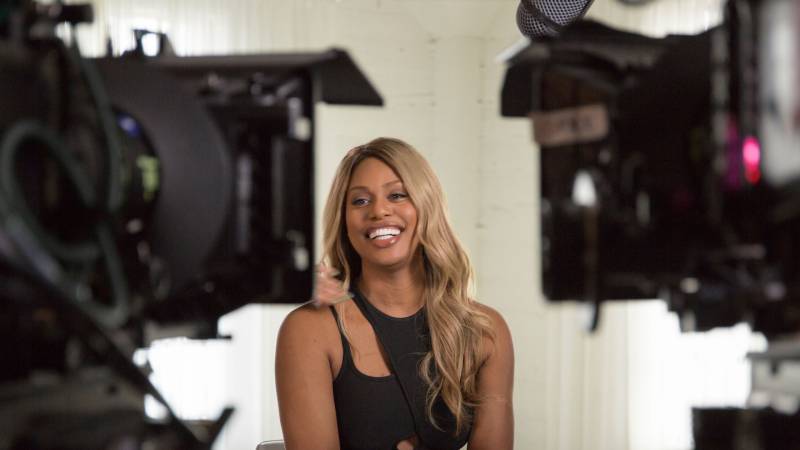Disclosure
Netflix
The ways in which mainstream movies and television portray one or another minority group has become an accessible, entertaining documentary genre. Trans people take the spotlight and all the interviews in Sam Feder’s incisive film. Trans representation is a complicated subject—what were viewed as advances in visibility 25 years ago, from The Crying Game to trans guests on “The Jerry Springer Show,” are now cringe-worthy—but the commentary (from Laverne Cox, Candis Cayne and several others) is insightful and nuanced.
The film smoothly moves through three stages of the depiction of trans people onscreen: Silent Era stereotypes, sensationalist tropes (murder victim, deviant killer or deceptive coward whose disclosure of his/her “secret” makes cis people vomit or injure the “freak”) and recent screen representations. It’s worth noting that television (including Netflix, most prominently) has outpaced film in sensitive, accurate portrayals of trans people. On the eve of Frameline44 Pride Showcase, a conversation among the filmmakers and many of the interviewees in Disclosure takes place online at 6pm on Wednesday, June 24.
Aviva
Rafael@Home and VOD
If you’re a sucker for dancing in the streets of Paris and New York, Boaz Yakin’s boundary-crossing independent feature will hook you within minutes. But before those first steps off the straight and narrow barré, Aviva tells us up front that it’s not interested in the artifice of tears-and-torment romantic drama.
The opening shot is of the cameras, and we’re quickly introduced to the camerapeople. Then a naked woman on a bed looks into the lens and informs us she’s a dancer who is acting. (Yakin and company decided this strategy was preferable to casting actors and asking them to dance.)
Yakin’s kinetic, sexually explicit evocation of a long-distance relationship goes even further, though. Each of the lovers (Aviva and Eden) is played by two characters to express and explore their feminine and masculine sides. This radical yet oddly accessible idea proves liberating for both the filmmaker and the viewer.
Aviva doesn’t work at every amped-up moment, but it’s one of the most alive and probing films you’ll see all year. The Smith Rafael Film Center hosts a livestream conversation with director Boaz Yakin and Daniel Gillies at 7pm on Saturday, June 27. Come for the dancing, stay for the honesty.
Mr. Jones
VOD
We can only imagine the raucous screening of Stage Mother (see above) that would have rocked the Castro sans COVID-19. For different reasons, it’s an enormous shame that Agnieszka Holland’s epic yet personal Mr. Jones was deprived of a big-screen run. (It was scheduled to open April 10 at a Landmark house).
The Polish director’s best work (Angry Harvest; Europa, Europa; In Darkness) is set amid the dark shadows of World War II. Mr. Jones unfolds in the murky prelude, when Welsh journalist Garth Jones (a very good James Norton) journeys from the cozy confines of 1933 London to paranoid Moscow to the snow-blasted Ukraine, where Stalin is wantonly starving millions in the Holodomor.
This extraordinary film works as both a riveting saga of one man’s conscience and a wrenching exposé of the cruel chasm that separates the universe’s masters from the masses. It resonates with viewers disgusted with politicians’ cries of “fake news” and pampered, compromised Beltway journalists—represented here by the New York Times’ dissolute Moscow correspondent, Pulitzer Prize-winner Walter Duranty (Peter Sarsgaard in another delicious, brilliant performance).
From the exquisite monochrome renderings of Ukrainian suffering to the piercing moments of professional sacrifice, Mr. Jones is a declaration of truth camouflaged as a work of art. It shouldn’t slip through the cracks.



